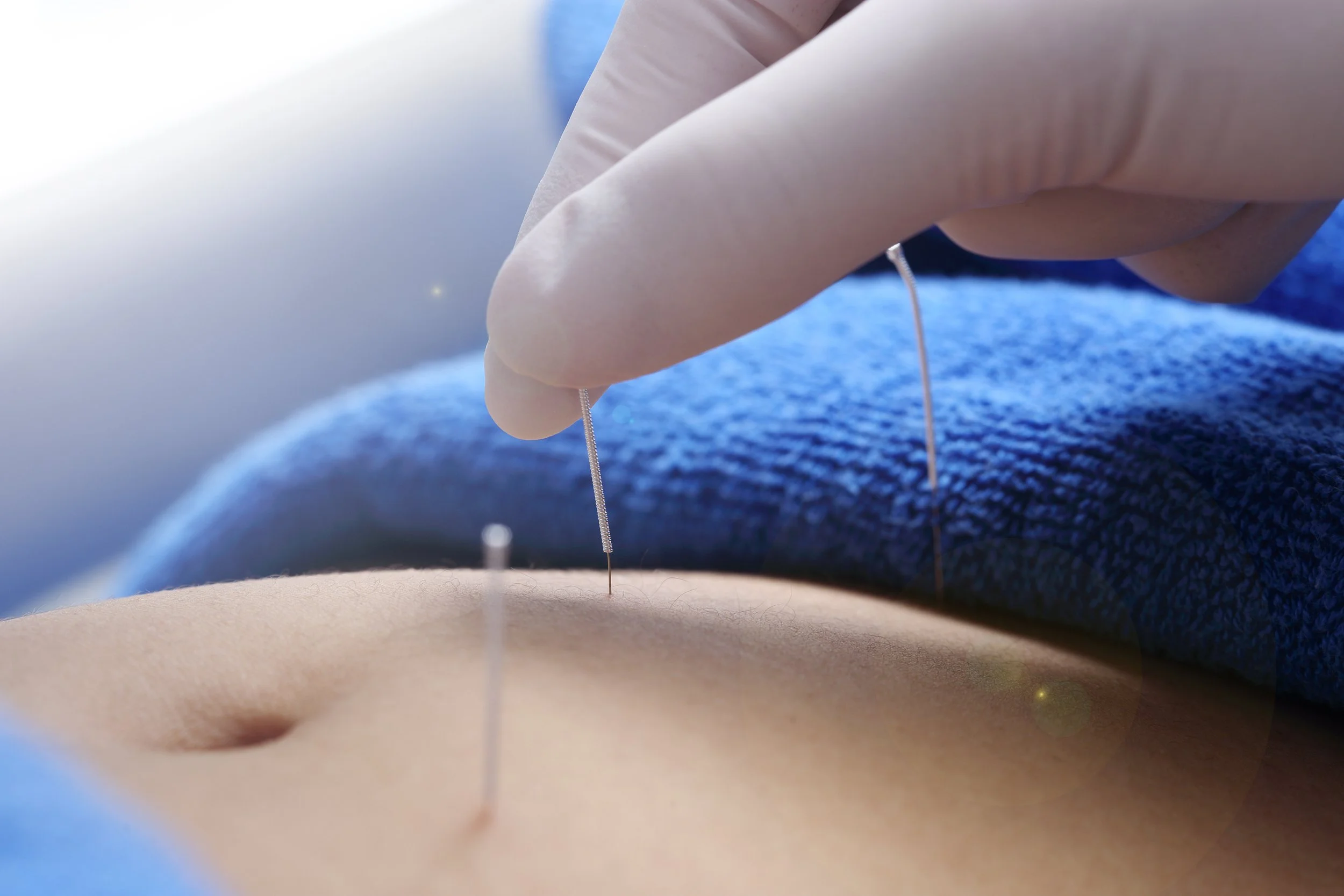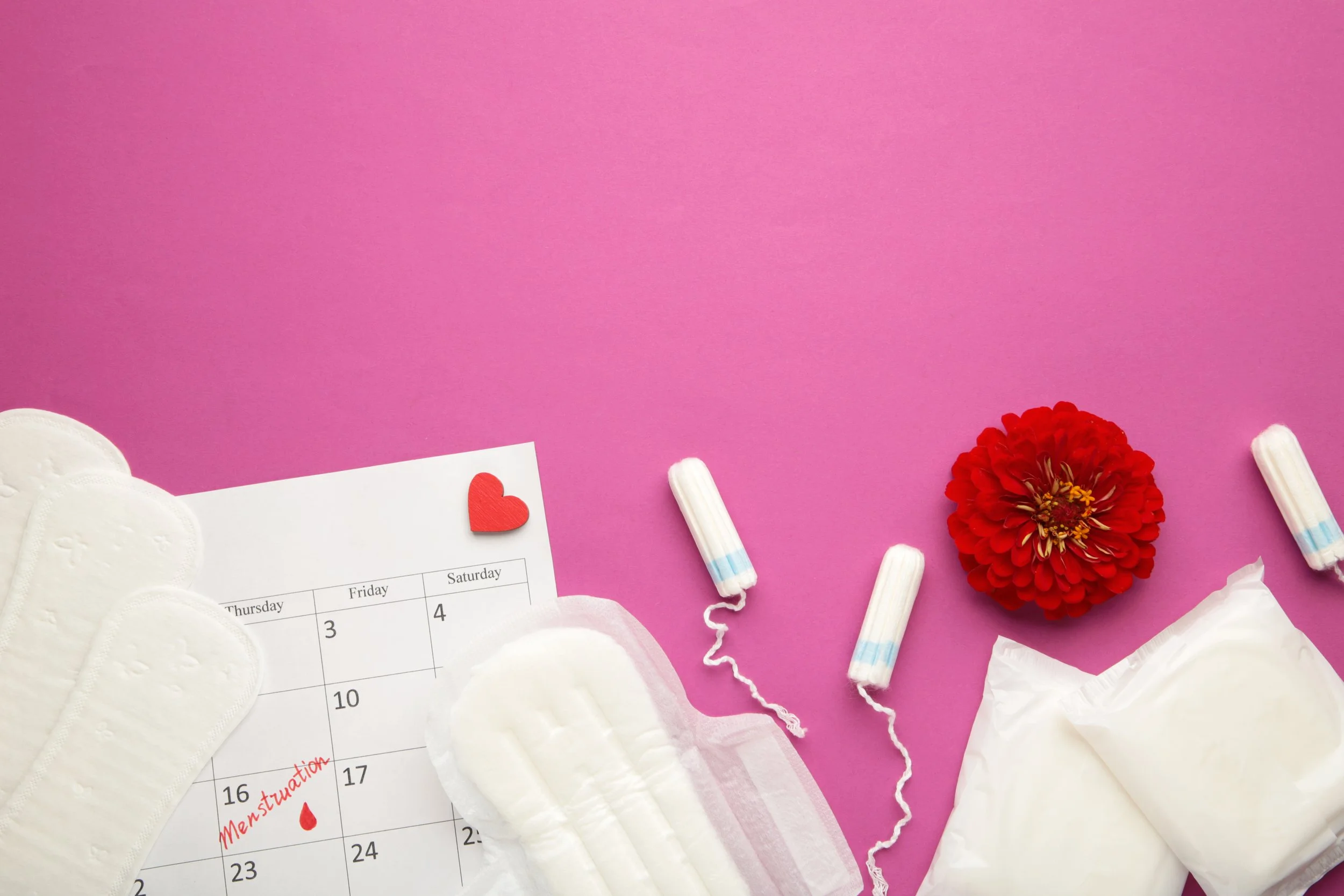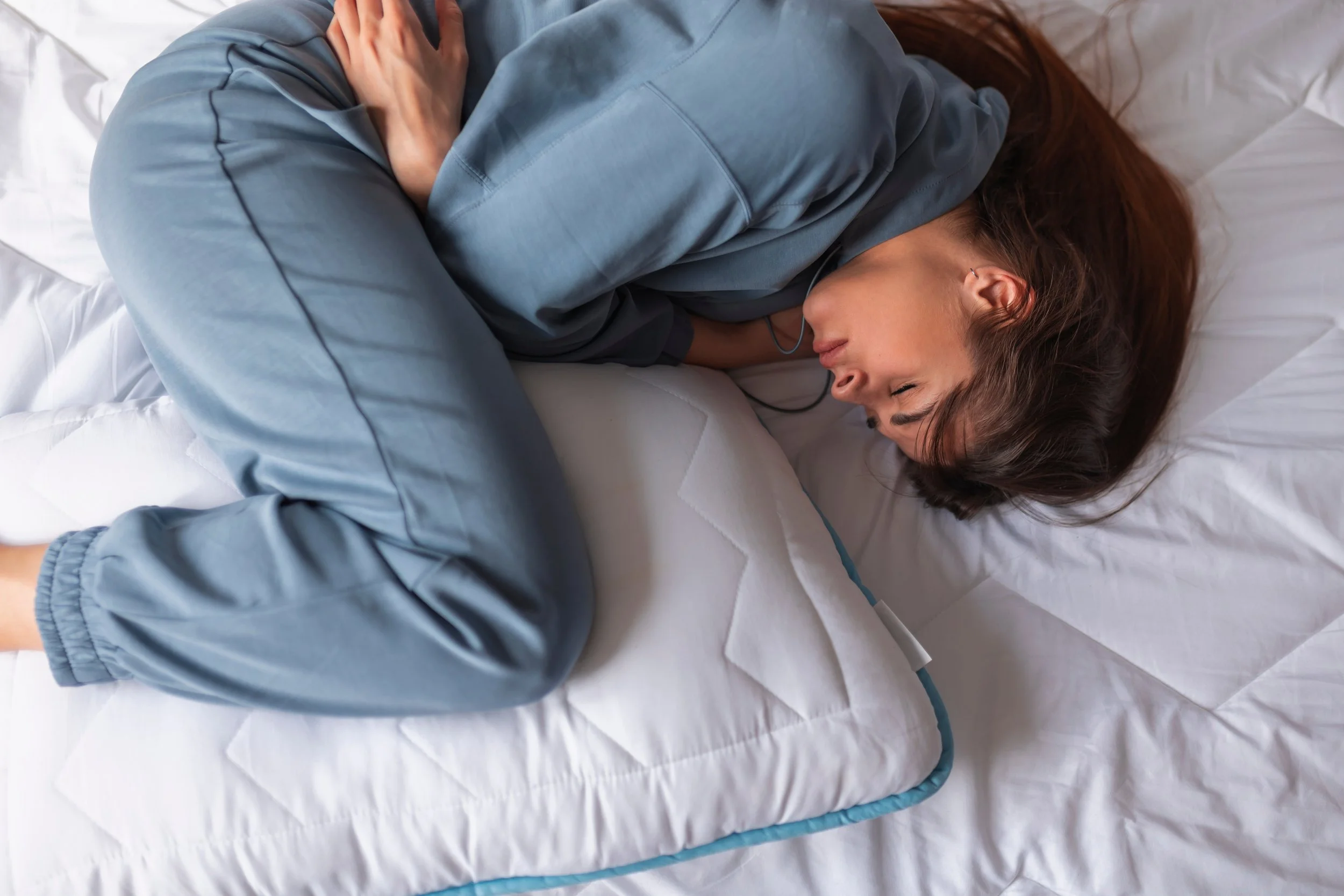What You Need to Know About Acupuncture for Menstrual Cramps
Up to 90% of women deal with menstrual cramps (primary dysmenorrhea) at some point in their lives. After enduring monthly bouts of discomfort for years, many are compelled to search for answers beyond the usual pill bottle.
Acupuncture offers relief from relentless menstrual cramps by balancing hormones, increasing circulation, relaxing muscles, and releasing endorphins. In this blog post, we’ll delve into how acupuncture brings its healing powers to bear on menstrual pain, look at what scientific evidence has found about its effectiveness and highlight when it’s best to book your sessions for peak results.
Curious if acupuncture could be the answer you’ve been searching for? Let’s dive deeper together!
Key Takeaways
Acupuncture can reduce menstrual cramps better than some over-the-counter medicines.
Studies confirm acupuncture's effectiveness for period pain relief.
For best results, start acupuncture sessions one week before your period begins and continue treatments for at least three months to achieve long-lasting relief from cramps.
Acupuncture not only helps with cramps but can also regulate your menstrual cycle, reduce bloating, mood swings, and treat other health issues related to stress and PMS symptoms without relying heavily on medication.
The Basics of Menstrual Cramps
Menstrual cramps are a common issue affecting 50-90% of women. The discomfort typically comes from the lower abdomen and can spread to other areas like the back or thighs. These pains can occur at any time in the days preceding or during menstruation.
Cramps often affect women’s daily life, making it hard for many to handle their usual activities. Pain levels vary from mild to severe. For some, over-the-counter medicine helps, but others might not receive sufficient relief from traditional treatment options.
The Role of Traditional Chinese Medicine in Menstrual Pain Relief
Traditional Chinese Medicine (TCM) plays a big role in easing period discomfort. This ancient practice uses methods like acupuncture to help the body find balance and health. Acupuncture, part of TCM, targets specific points on the body to free up Qi -- our life force or energy flow.
This helps lessen pain from periods and can make cramps less severe. It's about creating harmony within, which may lead to fewer cramps during that time of the month.
Acupuncture aims to restore balance in the body's energy flow for menstrual pain relief.
In addition to needling techniques, TCM also includes herbal remedies known for their ability to manage pain and support menstrual health. These herbs work together with acupuncture treatments, offering a powerful combination against period pains.
Many women have seen improvements not just in their pain levels but also in their overall cycle regularity and hormonal balance after turning to TCM solutions like acupuncture and herb-based therapies for comfort.
Exploring Acupuncture as a Solution for Menstrual Cramps
Acupuncture is a key player in easing menstrual cramps. Studies show that it beats no treatment and even some oral medications at reducing pain. We use tiny needles to target specific points on the body, aiming to balance energy flow.
This method has a long history in traditional Chinese medicine for improving various health issues, including menstrual discomfort.
We aim to treat the root causes of menstrual pain, not just providing one-time relief. Regular acupuncture treatment can help to balance hormones and promote menstrual harmony over the long-term.
The Science Behind Acupuncture for Menstrual Pain Relief
Research exploring the effectiveness of acupuncture in alleviating menstrual cramps has shown promising outcomes. For instance, a study conducted in 2018 demonstrated that individuals undergoing acupuncture treatments reported significantly reduced pain levels compared to those without any treatment.
Similarly, a 2011 study revealed that participants receiving acupuncture experienced diminished symptoms associated with menstrual cramps, including abdominal discomfort and bloating, in contrast to untreated counterparts.
Both studies observed that while some participants experienced immediate relief following their initial acupuncture session, others required multiple sessions before noticing substantial improvements in symptoms.
A recent study by Obstetrics and Gynecology experts in Australia unveiled that acupuncture could notably alleviate menstrual pain and shorten duration across three menstrual cycles. Remarkably, the positive effects persisted for up to a year post-treatment, irrespective of the technique employed (manual or electro-acupuncture). This discovery heralds great relief for the millions grappling with monthly agony.
Although the exact mechanisms behind acupuncture remain elusive, it is believed that the insertion of needles triggers the release of endorphins, natural pain-relieving compounds. Furthermore, acupuncture may aid in hormone regulation and enhance uterine blood circulation, thus reducing cramping.
Acupuncture might just be the relief you've been searching for!
Acupuncture’s Effects on the Menstrual Cycle
Acupuncture can change how your menstrual cycle works. It helps make cramps less painful, cycles more regular, and can also alleviate hormone-related symptoms like fatigue, sleep disruption and acne.
This practice also has other cool benefits. It might reduce bloating and mood swings before your period starts. So, if you're dealing with tough periods, acupuncture could be a great option to try out.
It's not just about less pain; it's about making your whole cycle easier to handle.
Optimal Timing for Acupuncture Sessions to Ease Menstrual Cramps
To get the best out of acupuncture for menstrual cramps, timing is key. Start treatments one week before your period begins. This approach helps prevent pain from starting. Our bodies respond well to this early intervention, making the experience more comfortable.
Studies show that sticking with acupuncture beyond a single session offers long-term relief. For lasting effects, continue sessions for at least three months after starting. This method ensures that benefits stick around longer, reducing pain significantly over time.
Early and consistent acupuncture sessions can dramatically reduce menstrual pain.
Addressing Other Menstrual Health Concerns Through Acupuncture
Acupuncture doesn't just help with cramps. It can tackle stress, mood swings, and other related symptoms such as hormonal migraines.
Managing Stress, Chronic Stress, and Anxiety with Acupuncture
We know that life can get very busy and stressful. Many of us face stress daily. It can come from work, school, or personal problems. This stress can manifest as chronic stress or anxiety.
Acupuncture helps with these issues by balancing the energy flow in our bodies, known as Qi. Treatment can decrease feelings of stress and unease, helping you cope with daily stressors from a place of balance.
By inserting needles at specific points on the body, acupuncture opens up energy paths blocked by tension, leading to a more relaxed state of mind and less worry.
Additionally, severe mood disorders, such as PMDD (premenstrual dysphoric disorder), can be reduced to more manageable levels with regular acupuncture.
Self-assessment Quiz for Menstrual Health
Taking care of our menstrual health is important. We've created a self-assessment quiz to help you understand more about your menstrual wellness. Here's what you need to check:
Frequency of Menstrual Pain: How often do you experience pain during your period? Is it with every cycle or just sometimes? Acupuncture has been effective in reducing this discomfort for many.
Pain Intensity: Rate the severity of your cramps on a scale from 1 to 10. Studies show that acupuncture can lower this rating.
Duration of Pain: Note how long your menstrual pain lasts. Is it for a few hours or several days? This detail can guide healthcare providers in recommending treatment.
Response to Over-the-Counter Medicines: Observe how your body responds to nonprescription pain relievers. Are they helpful, or does the pain persist? Acupuncture is an especially good alternative if these aren't effective.
Presence of Additional Symptoms: List any other symptoms you have during your cycle, such as nausea, headache, or fatigue. Traditional Chinese Medicine offers remedies for these too.
Impact on Daily Life: Consider how menstrual symptoms affect your activities and mood. Acupuncture aims to improve your overall well-being during this time.
Previous Treatment Attempts: Reflect on what methods you've tried before for relief and their outcomes. Knowing what hasn't worked can lead to new solutions and insights into your unique condition.
Interest in Alternative Therapies: Gauge your willingness to try treatments outside conventional Western medicine, such as acupuncture or herbal medicines from traditional Chinese practices.
This quiz encourages reflection on menstrual health and openness to holistic treatment methods like acupuncture, shown by research—including clinical trials—to ease period discomfort effectively.
Conclusion
We learned a lot about using acupuncture for menstrual cramps, from the basics of cramps to how traditional Chinese medicine helps. Studies show that inserting acupuncture needles at specific body points can really lessen pain.
This method works better than some common pain relievers and even keeps working after treatments end.
There are many success stories where women found relief from their painful periods through acupuncture. Whether you're dealing with stress or other menstrual issues, this approach could help too.
If you’re thinking about trying it, remember the best times for treatments to get the most benefit.
Acupuncture has shown us a safe and effective way to deal with period pain without relying on medication. It's worth considering if you're looking for a natural method to ease those monthly cramps.
So why not give it a try? You might just find the relief you've been searching for.
https://www.ncbi.nlm.nih.gov/pmc/articles/PMC8664518/
https://www.ncbi.nlm.nih.gov/pubmed/26346058
https://www.ncbi.nlm.nih.gov/pmc/articles/PMC3388479/
https://www.ncbi.nlm.nih.gov/pmc/articles/PMC5999465/
https://journals.plos.org/plosone/article?id=10.1371/journal.pone.0180177




